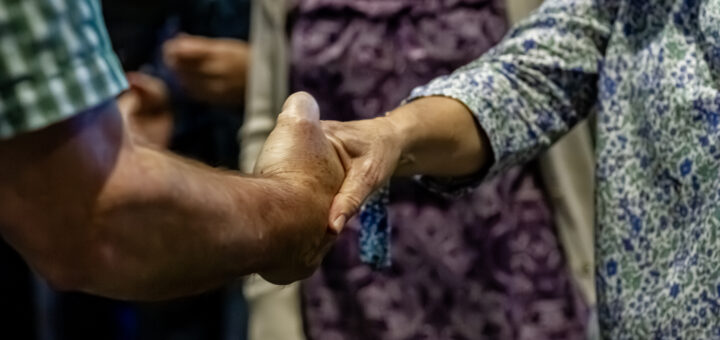Hospitality is More Than a Team

This is the next installment in our ongoing “Small Church” series, which looks at guest services through the lens of the smaller congregation: those with 150 or fewer people in attendance each week. See the entire series here.
Way back towards the beginning of this series, I laid out five myths that smaller churches typically face when it comes to hospitality. Myth #2 was “Everyone is a greeter,” the idea that we want every single person in the congregation to be responsible for welcoming every single person new to the congregation.
And while I’m still a firm believer in the adage “everyone’s job is no one’s job,” there’s still some truth to this particular myth.
Hospitality is so much more than a team.
The roots of biblical hospitality have nothing to do with a seven layer org chart broken down into door greeters, synagogue seaters, and first-time chariot parking. No, the initial call to hospitality felt far more personal than it did corporate: the ancient Israelites were to care for the outsider, the foreigner, the stranger, the sojourner. They were to love their neighbors as themselves.
In our modern day churches, we can get so much of the corporate side right, but miss opportunities for the personal side.
Dan Gingiss would call this a problem of immersion. Now to be clear, Dan is neither writing to the local church nor developing an apologetic for Baptist-style dunking. But in his fantastic book The Experience Maker, he says this:
“Being Immersive means delivering a consistent, connected experience so that the whole thing feels right…”
Consistent and connected.
If our team does a great job of welcoming guests at the door, but no one speaks to them in the auditorium, it’s inconsistent and disconnected.
If a guest’s fellow pew-dweller tells them how incredible the church is and how easy it is to get involved, but the guest’s requests for connection never get answered, it’s inconsistent and disconnected.
Not just a team, but a culture.
When do “consistent and connected” fall apart? When the whole thing doesn’t feel quite right. When we get it right corporately but blow it personally.
So yes, on the one hand, myth #2 is problematic, because everyone’s job is no one’s job.
But on the other, if the call to hospitality is still a personal one, then we don’t get an individual pass on individual care. We have to create a culture where hospitality is the rule, not the exception. We have to create moments where organic opportunities can arise. We have to encourage our people to stay alert when it comes to those on the fringes.
In our churches – small, big, and in-between, let’s not relegate hospitality to the sole role of a sole team. Hospitality may not be less than a team, but it’s so much more than that. Let’s create a culture where every person feels welcomed every weekend.
photo credit: David LeBron
